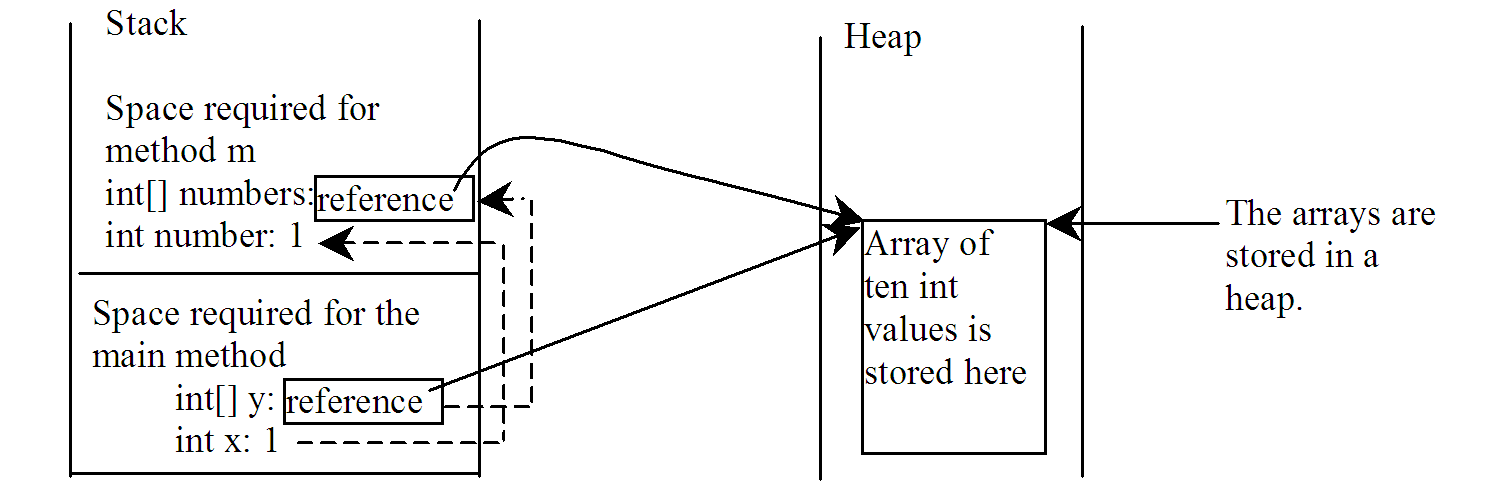Arrays
More skills
Pass by value
- Java uses pass by value to pass parameters to a method. There are important differences between passing a value of variables of primitive data types and passing arrays.
- For a parameter of a primitive type value, the actual value is passed. Changing the value of the local parameter inside the method does not affect the value of the variable outside the method.
- For a parameter of an array type, the value of the parameter contains a reference to an array; this reference is passed to the method. Any changes to the array that occur inside the method body will affect the original array that was passed as the argument.
Simple test
public class Test {
public static void main(String[] args) {
int x = 1; // x represents an int value
int[] y = new int[10]; // y represents an array of int values
m(x, y); // Invoke m with arguments x and y
System.out.println("x is " + x);
System.out.println("y[0] is " + y[0]);
}
public static void m(int number, int[] numbers) {
number = 1001; // Assign a new value to number
numbers[0] = 5555; // Assign a new value to numbers[0]
}
}
When invoking m(x, y), the values of x and y are passed to number and numbers. Since y contains the reference value to the array, numbers now contains the same reference value to the same array.

The JVM stores the array in an area of memory, called heap, which is used for dynamic memory allocation where blocks of memory are allocated and freed in an arbitrary order.